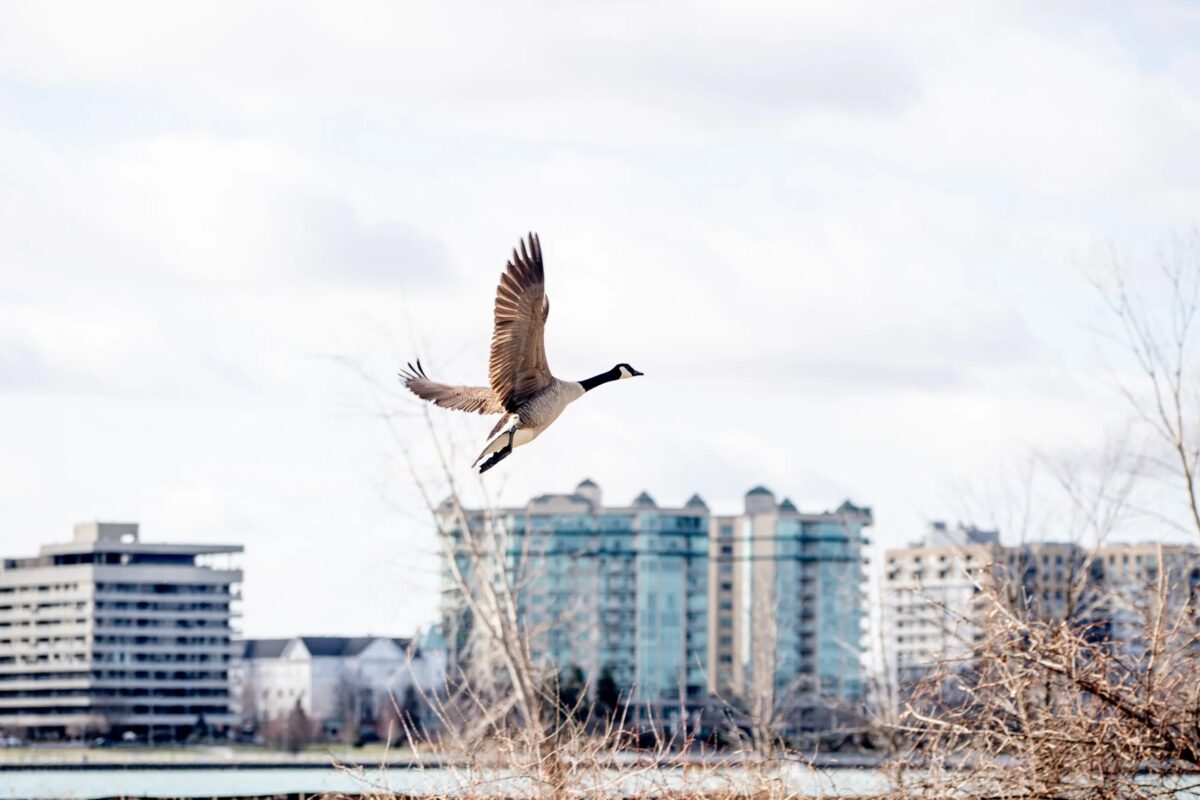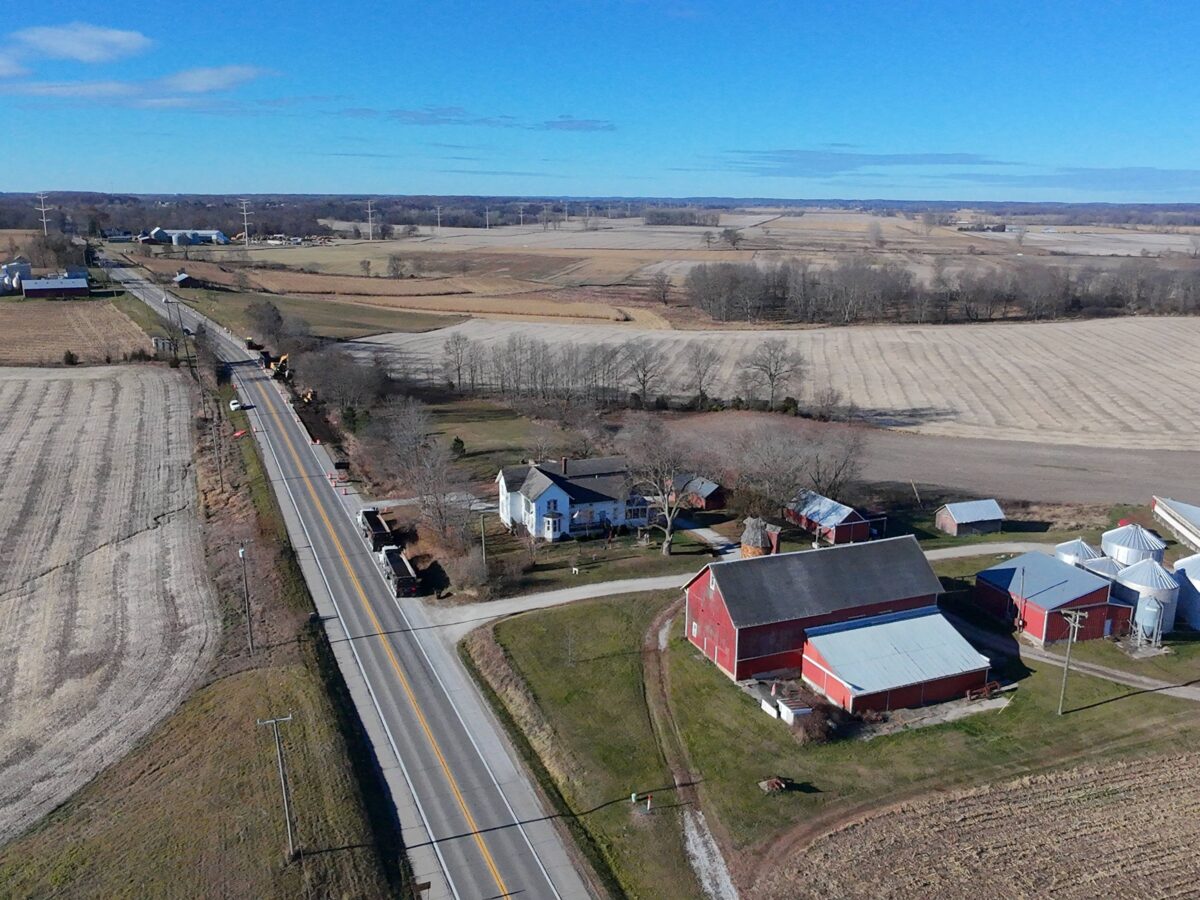Overview:
-Detroiters should treat all birds as if they are sick to prevent spread of avian influenza, wildlife biologist says.
-"You can still feed your backyard birds," says Kaitlyn Barnes, who has tips to keep them safe.
-Cats should be kept indoors and dogs should be kept from goose poop and dead birds.
This story was originally published by Outlier Media.
Bird flu has killed hundreds of wild birds in Michigan this year, and we wanted to better understand what Detroiters should know about the highly pathogenic disease, also known as avian influenza. We spoke to Kaitlyn Barnes, a wildlife biologist with the Michigan Department of Natural Resources, about how worried we should be (not a lot) and what precautions we should take (common-sense ones).
This interview has been edited for length and clarity.
OUTLIER: Detroit’s Belle Isle is a popular place for humans and waterfowl! You literally can’t walk around without stepping in goose poop. So what should we know about geese and bird flu?
KAITLYN BARNES: Oftentimes, when we see these outbreaks of avian influenza pop up, it has originated in waterfowl. It spreads really rapidly through waterfowl, especially when they’re congregated during migration or in the winter time.
Sometimes you’ll see groups of birds, whether it’s on the river or the lake, that are sitting in pockets of open water between the ice. They’re really close together, there’s a high likelihood of spread, and importantly, not all birds will die of it. Not all birds look sick.
The best advice is to just treat all birds like they’re sick. Avoid areas of high levels of bird poop, saliva, or mucus that could contain the virus. What does that mean for a place like Belle Isle, where people are recreating, and there’s a lot of goose poop?
Try not to track feces into your home. Maybe just take your shoes off outside, clean them off to try to keep those viruses from coming in. You can use a 9-to-1 solution of water and bleach and scrub it away.
(Editor’s note: State health officials say there’s no guidance specific to bird flu for swimmers, but swimming in water with a lot of waterfowl poop could expose you to pathogens, and you should avoid it.)
MORE FROM PLANET DETROIT
Court finalizes $100 million judgment against DTE Energy for Zug Island air pollution
This story was produced with support of Internews’ Earth Journalism Network.DTE Energy and three of its subsidiaries must pay $100 million for Clean Air Act violations at EES Coke Battery on Zug Island within 90 days, according to a final judgment entered in federal court Tuesday. The facility must come into compliance with the Clean…
Judge denies Saline Township resident’s move to intervene in data center settlement
Washtenaw County judge finds resident Kathryn Haushalter’s motion to intervene in settlement came too late and would only apply to an open case.
Trump EPA loosens coal emissions standards
Limits on mercury and other toxic emissions were first put in place by the Obama administration, which cut mercury pollution by roughly 90%. The Biden administration tightened them further.
OUTLIER: We’ve got a lot of feral cats in Detroit. Are there precautions or best practices we should know about protecting our pets?
BARNES: Cats can contract avian influenza, not only from other cats, but also from birds. If they’re killing and interacting with sick birds on the landscape, they could also become infected. Dogs can also become infected.
Our pets, yeah, they are at risk, especially if they’re outside eating or exposed to sick and dead birds. The best thing would be just to prevent them from interacting with wild birds.
For cats, that means keeping it indoors. For dogs, if you’re walking them, keep them on a leash so that you can keep them (away) from goose poop on the sidewalk or a dead bird — you know, just like you would anyway, right?

OUTLIER: What about feeding wild birds?
BARNES: There’s no advice to stop feeding birds. Songbirds, the birds that we’re generally feeding at our feeders, they’re not as susceptible to avian influenza as waterfowl or raptors like hawks and eagles and owls. It doesn’t mean they can’t get it. They can. We just don’t see the same level of mortality in them.
You can still feed your backyard birds, but there’s some simple steps to take to keep them safe. Maybe cleaning the feeders every one to two weeks with that 9-to-1 solution of water and bleach, that’s pretty good advice, even if we’re not seeing avian influenza, because there can be other diseases spread by birds.
If you do start to see dead birds, or you’re seeing a die-off in your area, remove the feeder and disinfect it until that passes. There’s no advice to not feed them. It’s still OK.
OUTLIER: Detroit legalized backyard chickens and ducks, and this will be the first spring it’s been in effect. How high is the risk of infection for backyard flocks in Detroit?
BARNES: I would say the threat and risk is real, and the best thing to do — I’ll just (go) back to the example of shoes with goose poop, right? You wouldn’t want to be walking around your chickens with that. And then, doing everything you can to try to keep wild birds separate. I know that’s so much easier said than done. And just being aware of what you’re tracking in around your poultry and around your birds.
Ultimately, for your own safety and health, of course, (do) those common-sense things (like) washing your hands and just keeping awareness. If there is a sick bird, you wouldn’t want to touch your face. You’d want to keep your hands clean and just watch for potential illness in the rest of the flock as well.
OUTLIER: Anything else Detroiters should know about avian influenza right now?
BARNES: It’s not something to worry about. It’s just something to be aware of and to take precautions — simple things like not tracking goose feces into your home, washing your hands, being aware.
We do ask that if people notice six or more dead wild birds, they file a report through our Eyes in the Field (form), just so that we can keep track of potential die-offs. And if people have questions or concerns, they can always call any of our customer service centers.
Editor’s note: If you come across a dead bird, check out these safe handling and disposal tips from Michigan Public’s Lindsey Smith.
This article first appeared on Outlier Media and is republished here under a Creative Commons license.![]()





